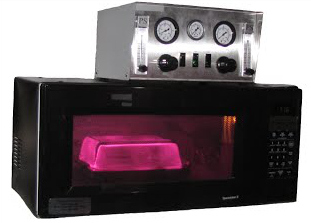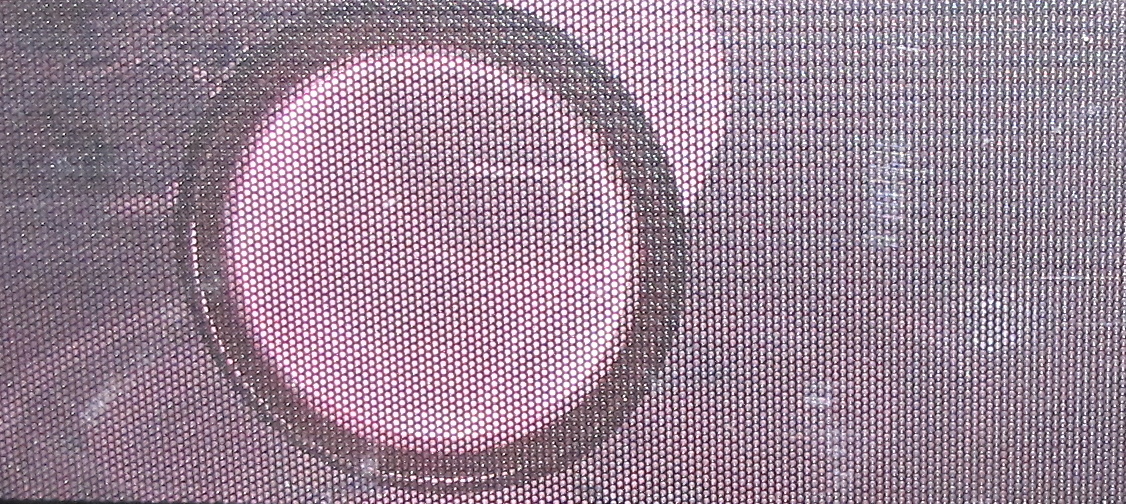SPI Plasma Prep Jr. Barrel Microwave Plasma Etcher/Asher/Cleaner
SPI Plasma Prep™ Jr. Barrel Microwave Plasma Etcher/Asher/Cleaner 110v/60Hz:
A Fast-Acting Barrel Reactor, ideal for samples that can withstand some high temperature exposure. For temperature-sensitive samples, simply decrease plasma power and extend processing time. The Pyrex chamber of this unit measures 4" in diameter and 6" in length.
Using Microwave Technology for Economical Plasma Etching
The SPI Plasma Prep Jr. provides a technical and economic alternative to other plasma etchers. Using microwave energy, the Plasma Prep Jr. can remove organics and some inorganics (and their oxides) from a variety of surfaces, including metals, semiconductors, and ceramics.
The etching process requires bleeding into the system a gas with the "right" chemistry to etch the surface. For example, if organics are to be removed, oxygen is used. Or, if the passivation layer of an electronic device is to be removed, carbon tetrafluoride or some other reactive fluorine gas is used.
Compared to RF plasma etching, the SPI Plasma Prep Jr. microwave based system operates at higher gas pressures, resulting in faster etch rates. That means greater throughput of samples, but less discrimination when contrast is being sought through differential etch rates. Also, the water-cooled unit allows you to economically maintain sample heating from room temperature to 150° C.
NOTE: Samples in the Plasma Prep Jr. develop higher temperatures, so much higher that it is not normally recommended for polymers. But note that the biggest advantage is that more power can be delivered for less money. So for someone on a limited budget, requiring a relatively larger chamber (e.g. one larger than the Plasma Prep II unit) it can often times be justified as the right option, even though one has to exercise greater care with overheating problems. But in the SPI Plasma Prep Jr. unit, glass passivation layers can be removed much faster when conducting a failure analysis. However, in some cases, despite one's best efforts, the devices can not stand the higher temperatures. However, it is possible to back off on the power and run the system at lower levels of sample heating, so this heat generation problem is not necessarily the problem it might, at first, appear to be.
Accessories:
- Water Recirculator. Makes the system independent of water lines, and results in longer life of the heat exchanging elements.
- Ion Trap. Protects very sensitive materials from the sputtering action of the plasma. This trap neutralizes the charged ions (leaving only neutral radicals to perform the cleaning actions) and acts as a Faraday cage that shields the sample surface from microwaves inside the chamber.
- Gas Controller. Contains all vacuum and gas controls necessary for operation and provides power for the vacuum pumps and the water recirculating system.
- Vacuum Pump. External 2.9m3/h pump, DUO 3 made by Pfeiffer Vacuum, Inc.
- Process Platform and Special Tongs. Eases manipulations within the barrel reactor.


